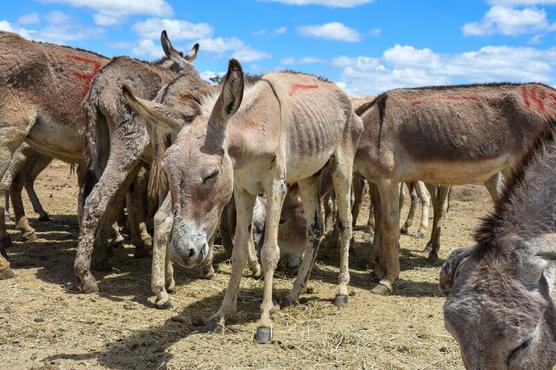In Brazil, donkeys are slaughtered to produce a remedy for traditional Chinese medicine
In Brazil, donkeys were once considered the "brothers" of the northeastern population, as described in "Apologia Ao Jumento" ("Apology to the Donkey"), a song written in 1968 by the region's popular artist Luiz Gonzaga as a tribute to them.
These docile, resilient animals, brought to the country on Portuguese colonial ships in the 16th century, were essential to farmers for carrying loads and plowing the land. According to the international NGO The Donkey Sanctuary, over time, donkeys in the northeast evolved into a distinct breed, adapting to the region's semi-arid climate by becoming smaller to save energy.
By the end of the 20th century, however, they were increasingly abandoned, replaced by motorcycles and machines. As a result, few people today are concerned about their disappearance. In 2016, Brazil authorized the slaughter of donkeys to export their skins to China, where they are much sought after to produce a traditional collagen-based remedy called ejiao, which is said to treat anemia, coughs, insomnia and even infertility.
According to data from the Brazilian Ministry of Agriculture and Livestock, since 2018, around 38,600 donkeys have been slaughtered each year, leading to a 60% population decline between 2018 and 2023. "If donkey slaughter continues at the current rate, this irreplaceable animal could disappear forever," warned The Donkey Sanctuary in a statement issued on November 14, just days before the G20 summit in Rio de Janeiro, which was held from November.
Source: Lemonde





